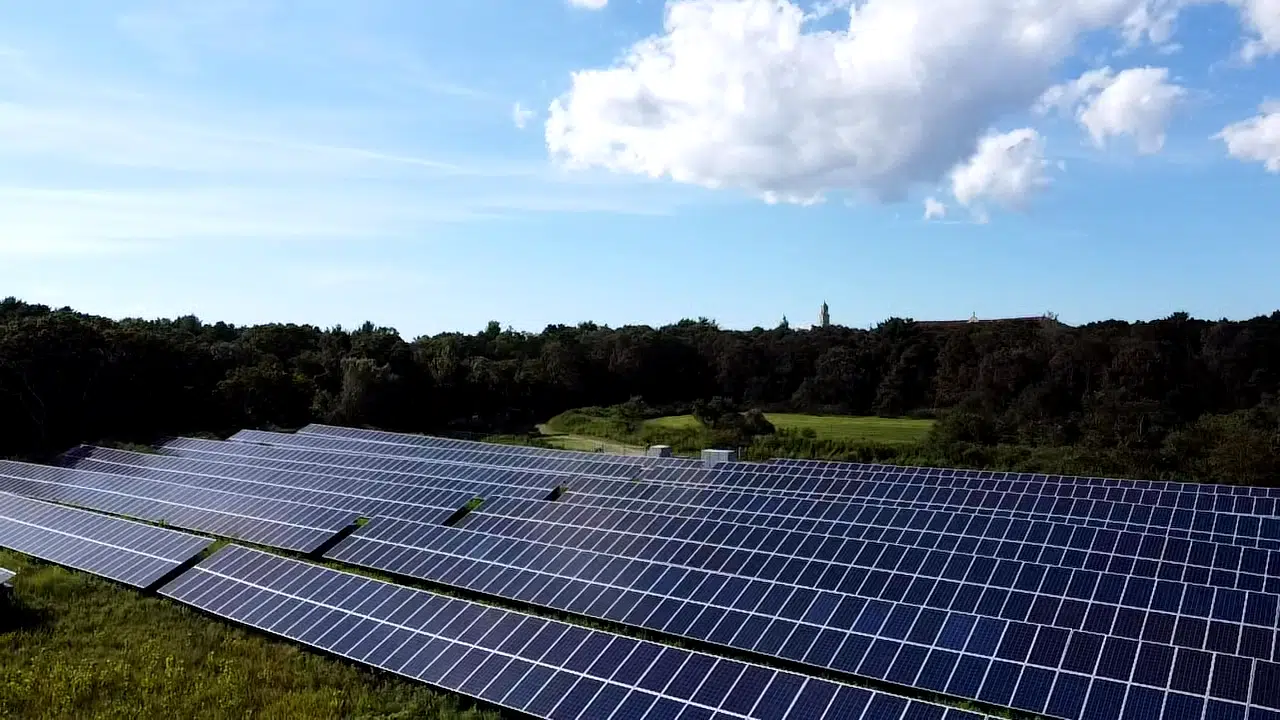Land Management Ministry
Land Management Ministry
By Caleb Rollins
The journey to ceding control of faith community property can take years and often builds on intentional spiritual reflection and careful practical planning. The Sisters of St. Joseph in Brentwood, New York, whose roots go back to seventeenth-century France, exemplify how the persistence of preparation can lead to innovative and sacred use of religiously owned land.
The sisters run their ministry of justice and care for their neighbors from 212 acres of meadows and woodlands on Long Island. In 2002, the sisters began over a decade of communal study and reflection on how they might apply their ethics of justice to this land they hold. As a result, in 2015, the sisters created a Land Ethic Statement to guide their next steps in stewarding their property. “We will evaluate the consequences of all decisions made regarding the land in the context of our mission and will be aware of the interrelated justice issues and global implications,” the statement reads.
While they felt the time of study and conversation that led to the Land Ethic Statement was a transformational experience, they still had to put it into action. Sister Karen Burke, coordinator of Land Initiatives, said, “It was a moment of ‘everything looks good on paper, but now what?’”
Fortunately, through their years serving their neighbors on Long Island, the sisters had developed strong relationships in the community. A conversation with the local community foundation led to a connection with the Peconic Land Trust, an organization dedicated to preserving the farmland and natural lands of Long Island. With their Land Ethic Statement as a foundation, the Sisters of St. Joseph now had expert partners who could guide them with the legal and ecological knowledge often needed for intentional land stewardship.
The staff at the Peconic Land Trust helped the religious community develop a master plan for how best to manage their land sustainably and how they might transfer ownership into different types of conservation trusts. They initially focused on dedicating twenty-seven acres of their property to sustainable farming and ensured that the farming also aligned with their commitment to justice. To physically till the soil, the sisters partnered with local socially conscious farmers who focused on youth development, preserving native plants, and growing produce for local food banks. Through dedicating this land to sustainable farming and through navigating legal hoops for three years, the sisters eventually were able to sell their development rights of this acreage to Suffolk County’s Farmland Preservation Program. The land transition will ensure that this area of the sisters’ property is dedicated to sustainable agriculture practices in perpetuity.
This first project energized the land stewardship work of the Sisters of St. Joseph and spilled over into other projects. They invested in solar panel installations, rain gardens, growing native meadows, and environmentally friendly wastewater systems. Ultimately, they hope their view of the Earth and its creatures as sacred will continue to manifest on this land long after they are gone. With the help of their master plan and their partners at the Peconic Land Trust, they intend to preserve even more of their land through trusts, deed restrictions, and other easements. “The ultimate goal is to protect all the acreage from development,” says Sister Joan Gallagher.
This foresight and the perseverance required to slog through the legal minutiae of land rights sales stands on the work of learning and spiritual reflection the sisters began decades ago. Sister Karen believes that putting in place this foundation was a necessary step in their transformative work. Through connecting deeper with their traditions and identity based in the seventeenth century, the Sisters of St. Joseph were able to develop an innovative plan for their land that will serve the people, plants, creatures, and soils of Long Island for generations to come.
This story is part of Lake Institute’s story collection, the Faithful Generosity Story Shelf, which highlights congregations and other religious organizations who have sought to use their assets and resources in creative—and sometimes surprising—ways as an expression of faithful giving.
Each entry in our Story Shelf is short enough to be read and discussed during a committee meeting or other group gathering. Our hope is that these accessible vignettes will spark new questions, conversation, and imagination among clergy and laity about what might be possible with the funds, buildings, land, and other resources in their care. If you know a story that should be included in the Story Shelf, suggest it here.
Subscribe
Insights, a bi-weekly e-newsletter, is a resource for the religious community and fundraisers of faith-based organizations that provides:
- Reflections on important developments in the field of faith and giving
- Recommended books, studies and articles
- Upcoming Lake Institute events

